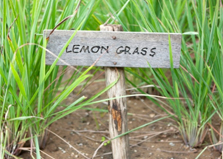
Source: LoopNews-https://jamaica.loopnews.com/content/botanical-roots-why-you-should-consume-fever-grass
Lemon grass, which is also known as fever grass in Jamaica, is a plant that grows wild throughout the island and most tropical countries. It is known to have a wide variety of health benefits.
The plant is a source of essential vitamins and minerals including vitamins A, B and C, potassium, magnesium, phosphorous, manganese, zinc, folate and iron.
As its name suggests, fever grass is known to counteract the effects of a fever especially in children but is also great for adults.
Fever grass is a great mind relaxer as many people find sipping a cup of hot tea to be soothing, and fever grass tea is known to contain further anxiety-reducing properties.
It is also known for its quality in reducing cholesterol levels. According to an article in the Journal of Advanced Pharmaceutical Technology & Research, consuming fever grass extracts appears to lower cholesterol in animals. The study notes that the reaction is dose-dependent. This means that larger quantities of fever grass might lower cholesterol further.
Fever grass also contains some infection-preventing qualities. The herb can reduce the incidence of thrush, a fungal infection that commonly affects people with weakened immune systems, such as those with HIV.
Some people are known to use the stalks and chew them as a way to improve dental health and keep the mouth feeling clean. The Food Chemistry journal published a study confirming these findings. The authors looked at 12 herbs and found that fever grass herbal extracts were one of the most potent inhibitors of bacterial growth in lab samples. They used bacteria that can cause cavities in the mouth including Streptococcus sanguinis.
Long known by the older folk in Jamaica, fever grass tea can be ingested as a means of easing pain. The tea has long been used as a pain fighting remedy in many Jamaican homes.
Drinking fever grass tea infusions daily, for 30 days, reportedly can increase hemoglobin concentration, packed cell volume, and red blood cell count in the body.
The tea is also known to combat bloating. Drinking fever grass tea can have diuretic effects, which means that it stimulates the kidneys to release more urine than usual.
In addition, the leaves and the essential oil – which is anti-fungal and anti-bacterial - are used in traditional medicine to relieve spasms and increase perspiration.
The plant extract is also used to treat digestive ailments, arthritis pains and various skin conditions.
The tea is also excellent for the treatment of digestive problems, where it relaxes the muscles of the stomach and gut, relieving cramping pains and breaking wind.
The essential oil of the plant is a very effective treatment for conditions including athlete’s foot, ringworm, lice and scabies and is an effective wound wash.
So next time when someone recommends you drink fever grass tea, heed their advice and stick to your botanical roots.

